Arts & Culture
9. These UNESCO-Protected Mansions in Istanbul Were Rotting Away. Then Syrians Refugees Moved In.
“Few of the residents in the area know that the wooden houses they live in are of immense historical importance. They are some of the last surviving Ottoman-era mansions in Istanbul, where vast construction projects and a relentless drive for modernization have transformed the city’s landscape in the last century.”
10. 10 Pieces You Need to Read About Sexual Assault and the Church
Our prayer is this: May our reading and writing lead to preaching and legislating, may our preaching and legislating heal trauma and end sexual violence. Amen.
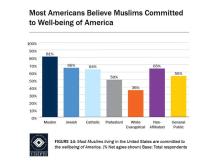
“The vast number of Muslims say being an American is important to how they think of themselves,” said Dalia Mogahed, director of research at the ISPU. “They also say that being a Muslim is important to how they think of themselves. When you look at those identity factors, they’re actually mutually reinforcing — meaning, if you have a higher Muslim identity, you are actually more likely to have a stronger American identity. They’re not in competition.”
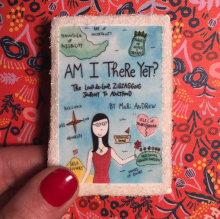
"It’s very easy for people to say, 'This will make you stronger,' or even, 'You’re strong already, you’ll get through this.' But that’s just not really the whole story."
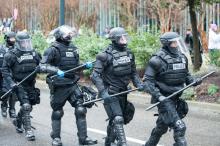
Critics mock that success at football does not qualify Kaepernick to speak on social issues. Yet the athletes of the NFL have achieved their elite status through years of focus, passion and training in an industry that is inextricably tied to conceptions (right or wrong) of black and brown masculinity and success. They are probably more qualified than anyone to comment on the intersection of strength, fear, security, and vulnerability that undergird the state-sanctioned brutality in America’s streets.
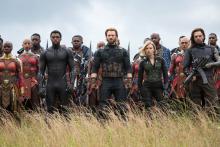
Previous Avengers movies were about the challenges of building and sustaining and a community. Infinity War is a sobering reminder that even the biggest, strongest communities sometimes face adversity that results in sacrifice, uncertainty and loss. This is the MCU’s equivalent of C.S. Lewis’ The Last Battle, gathering characters both beloved and new, and throwing them into a brutal endgame. It’s a Good Friday movie, too, putting those left standing at the end into their own version of Gethsemane.

A former administrator for the women's basketball team at Temple University, Cosby's alma mater, Constand is one of about 50 women who have accused him of sexual assault. All of the other allegations are believed to be too old to be prosecuted.

I Feel Pretty is mainly a superficial enterprise. There are plenty of opportunities for smart satire here, but co-writers and directors Abby Kohn and Marc Silverstein stick to a simplistic interpretation — one that claims to push for female empowerment, but still remains concerned with looks and a pretty narrow definition of beauty norms.

Described by Christopher Mathias of the Huffington Post as "the most aggressive over-policing [he has] ever seen," images circulating on Twitter showed heavily armed police officers pointing weapons at seemingly unarmed counterprotesters.

But Stewart-Bouley’s and Ajayi’s articles give me insight into my housemate’s response. My story of crying at the Israeli border seemed innocuous to me, a way of laughing at my own emotional frailty, but I can now see how it would seem like a veiled message of my power to my black friend — a power that she doesn’t have. As a white woman, I walk a delicate line between being hurt by misogyny and white supremacy and benefiting from it. When I experience the pain of limitations at work, of being put down and dismissed by male colleagues, professors, and pastors, and of outright sexual harassment and assault (yes, #metoo), it is hard to see the ways in which this same system is also supporting and benefitting me. The very attitude that frustrates and limits me, that women are inferior and need to be protected, also caters to me in ways that it does not cater to black women. And, as Stewart-Bouley points out, that catering can be fatal.

1. ‘We Are Heavily Armed. —the Pastors’: The Root of the Christian Right’s Embrace of Guns
“I’m reminded that at the root of much of the Christian Right’s antipathy to gun control is a sense of fear — a sense that they are the final guardians of God’s will for America, that they are being overrun by something they see as from the devil.”
2. A Short Timeline of Starbucks’ Fraught History with Race
The unwarranted arrest of two black men — who were prepping for a meeting — inside a Philadelphia Starbucks is just the latest incident in the chain’s history.

Sometimes, the film tells us, there are no good answers. All we can do is sit with our thoughts and do our best to love each other well.

The news of Silverman’s dismissal is a serious second blow to organized atheism, which has long struggled with charges of sexism and discrimination. In February, similarly explosive allegations were made against Lawrence Krauss, a prominent scientist at Arizona State University, best-selling author and popular speaker at atheist and skeptic events.
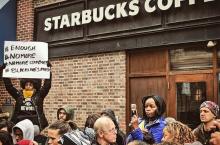
Ross said that as an African-American man he was acutely aware of implicit bias. "We are committed to fair and unbiased policing and anything less than that will not be tolerated in this department," he said.

"The Carlton story was appealing partly because it's just an amazing story about a man standing up for what he believes in, and then he just loses everything. It's a very old-fashioned kind of cinematic story. Then it was exciting that the entire story takes place in the church. There aren't outsiders at all. It's evangelicals talking to other evangelicals."
1. The Rules of the Asian Body in America
“The story of the Asian body in America is a story about rules, money, race, and imperialism.”
2. One Year Later, Fewer Deportations in Cities That Adopted 'Welcoming' Policies
When local governments collaborate with ICE, deportations increase—in some places, more than 75 percent. But New Mexico shows a different way.

The survey illustrates the intersectionality of race and environmental justice, referencing research by the NAACP that found that race is the principle indicator of the level of susceptibility to environmentally-caused negative health outcomes, as well as economic and pyschological impacts.
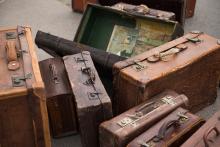
April 12 marks Holocaust Remembrance Day. Each year communities and schools plan various events such as reading the names of Holocaust victims and survivors, forums of Holocaust survivor speakers, or panel discussions with historians. These events run through an entire week of remembrance.
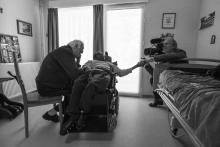
“This is how the world is meant to be.” That’s what Randall Wright, director of the exceptionally powerful new feature-length documentary Summer in the Forest, said he thought the first time he visited one of the L’Arche communities founded by Jean Vanier that are the subject of his film.

The Netflix documentary Wild Wild Country has revived interest in the “free-love cult” founded by Indian guru Rajneesh, or “Osho,” that in 1984 launched a “bioterror attack,” spreading salmonella in restaurants near the group’s Oregon headquarters.

My obsessive inner nerd rose to attention. You couldn’t have seen resurrection in Jesus Christ Superstar because there was no resurrection in Jesus Christ Superstar. That was the point! [I online shouted.] That’s why some considered it scandalous — a very human Jesus, a Judas who makes a lot of sense if you listen to him, and no Jesus rising from the dead. It doesn’t deny the resurrection. It just stops beforehand